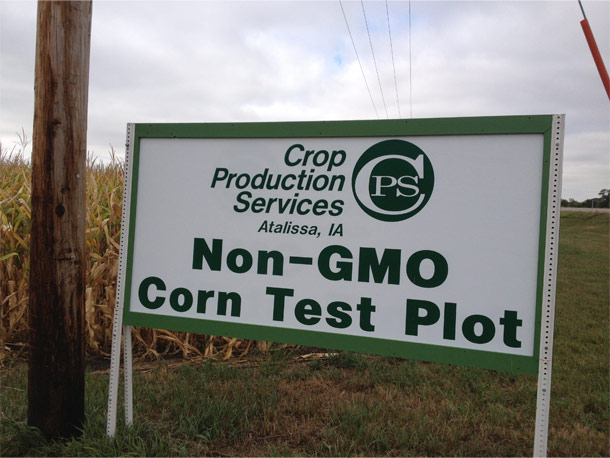Midwest farmers committed to growing non-GMO
By Ken Roseboro
Published: August 28, 2014
Category: Non-GMO Market News

To access all the articles in this month's issue of The Organic & Non-GMO Report, SUBSCRIBE NOW.
Despite challenges with seeds, markets, and strict non-GMO standards, farmers are making non-GMO crops work for them
A survey of conventional farmers growing non-GMO corn and soybeans found that they are committed to growing the crops for the economic and practical benefits as well as being philosophically opposed to GMO production.
Practical Farmers of Iowa, which encourages diverse sustainable agricultural practices, conducted the survey.
Premiums, higher yields, GMO concerns
The survey found that farmers with fewer than 500 acres tend to grow more non-GMO corn, while farmers with more than 500 acres grow more non-GMO soybeans.
Some “bottom line” business reasons for growing non-GMO reported by farmers included earning a premium price, being able to deliver their crops to a nearby non-GMO facility, and producing higher yields with non-GMO crops.
Philosophical reasons included believing that genetic modification is an unproven technology that may have negative health and environmental risks, and not wanting to do business with GMO seed companies such as Monsanto.
One farmer wrote: “GMOs are unknown or unproven in animal and human diets and the unknown ripple effect that there might be.”
The farmers reported challenges in obtaining non-GMO corn and soybean seeds. Many had to shop around if they wanted more choices. They also found the number of seed choices offered by seed companies to be limited, as well as information about each non-GMO seed variety.
“It’s my perception that I’d have a problem accessing it, because my seed companies only want to push the GMO stuff,” wrote one farmer.
Marketing, GMO testing challenges
Farmers reported challenges with marketing their non-GMO crops due to higher transportation costs; they have to transport their crops farther to a facility that accepts non-GMO grains.
Some farmers are contracted to grow non-GMO crops but these are the exception rather than the rule. Farmers sell to a variety of buyers including local grain elevators, ethanol plants, feed companies, and companies such as Consolidated Grain & Barge, World Food Processing, or The Scoular Company.
Other challenges included short delivery windows and grain testing standards for GMOs. If their grain tests positive for GMOs, farmers lose their premium as well as the transportation time and cost.
One farmer wrote: “The hardest part is they have pretty strict standards, and they test it pretty thoroughly and if it doesn’t meet standards, you miss out on all that and you pay for trucking.”
Committed to non-GMO
Despite the challenges, the survey found that farmers remain committed to growing non-GMO. The survey states: “These farmers are proactively trying to make the non-GMO crops work for them. Most aren’t sitting on the sidelines waiting for solutions or opportunities to come their way; they’re working through solutions and finding opportunities, sometimes on their own.”
© Copyright The Organic & Non-GMO Report, September 2014




